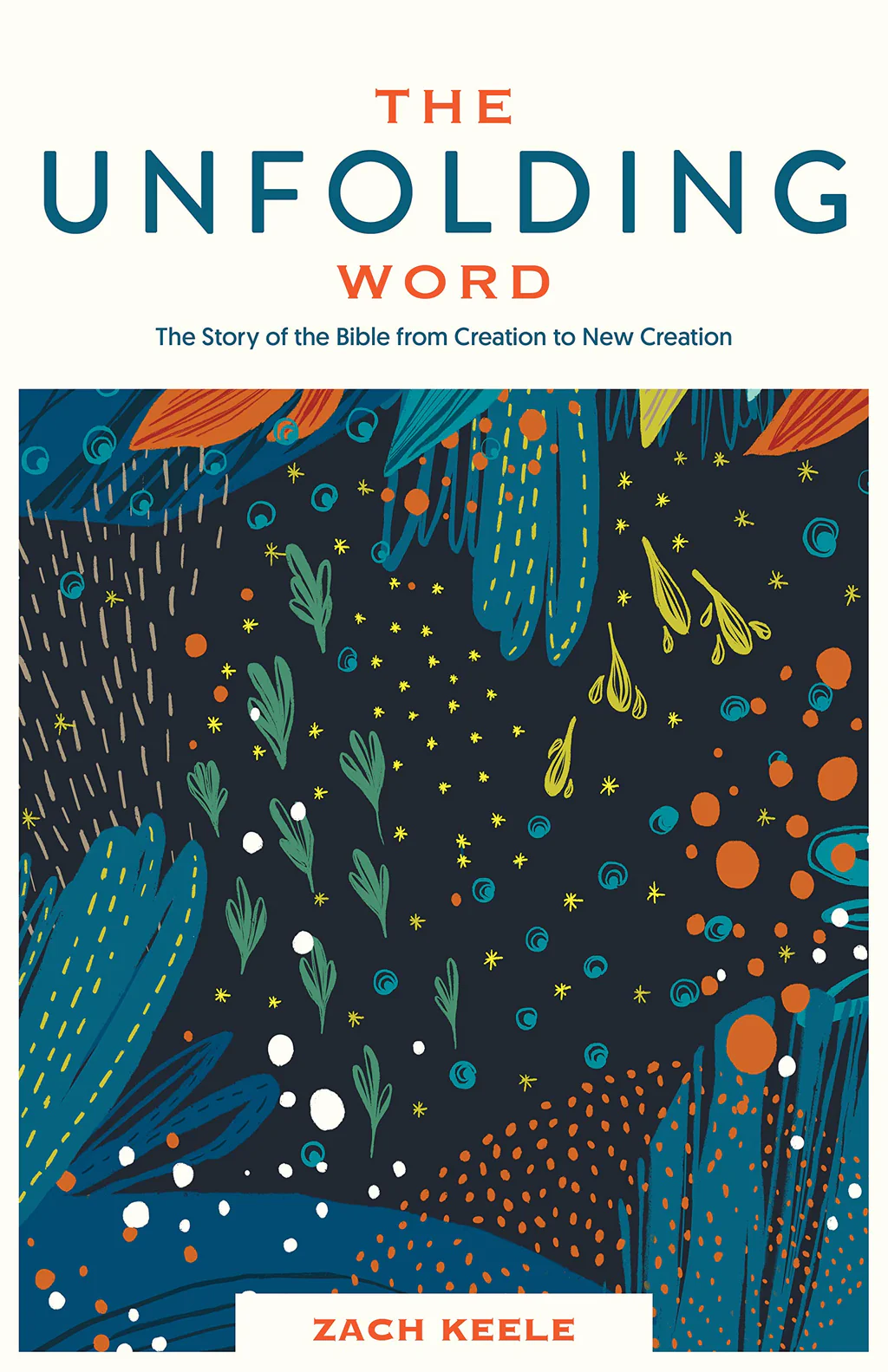
Zach Keele
Reviewed by: Z. Bulut Yasar
The Unfolding Word: The Story of the Bible from Creation to New Creation, by Zach Keele. Lexham Press, 2020. Paperback, 203 pages, $24.45. Reviewed by OP pastor Z. Bulut Yasar
The Bible is the greatest and the most wonderful story on which all other good stories find their footing. Yet, understanding and internalizing this grand story can be a challenge. We need help to improve our understanding of God’s Word and to develop our appreciation for it. OP pastor and professor Zach Keele’s The Unfolding Word is a welcome resource and a helpful contribution in this regard. Keele has been teaching English Bible Survey at Westminster Seminary California since 2004, and he shares his knowledge and years of experience as a pastor and a teacher with us in this valuable work.
Keele’s main goal is to guide us over the hurdles that stand in the way of reading the Bible well. He achieves this by emphasizing several things: First, throughout the book, Keele focuses on the big picture, the grand story of the Bible, while also paying attention to the details, hence appreciating both the forest and the trees of the Scriptures. He constantly “zooms in and out,” as he puts it. He sees slow and fast reading as essential to understanding the Scriptures well. Second, Keele emphasizes that the Bible is a historical book. It includes real people, real kingdoms, and real places, so Keele includes many maps, pictures, and tables to accentuate this feature of the Bible. Third, as Keele points out, “The Bible is an ancient story, which means, in order to understand the texts written in a world that is different than ours, we need to know the culture, people, and the time.” And lastly, Keele wants to keep in mind the culmination of the revelation of God—Jesus Christ, the fulfillment of all the promises of Yahweh. In every section, the reader encounters Keele’s theological and contextual precision and also his emphasis on the ultimate object of all the stories in the Bible.
The thirteen chapters are historically and thematically arranged. For instance, while Keele covers the books of the Bible that predominantly focus on the Mosaic Law in a single chapter, there are separate chapters that follow Israel’s formation and journey to Egypt, and Israel’s journey to and settlement in the Promised Land. What distinguishes Keele’s work from similar Scripture surveys is that, as he unpacks the story of the Scriptures, he brings together the history, the cultural context, the covenantal framework, the redemptive historical progression, and the telos and content of the Bible, Jesus himself. Therefore, we naturally find Keele comparing other creation accounts with the Scriptural testimony while discussing Genesis 1–3, or informing us about the Ancient Near Eastern treaties and their forms while unpacking the Mosaic Covenant. Similarly, it is not surprising to see Keele cover topics such as repentance and reconciliation while following the line of Jacob, or focus on both the fulfillment of the great promises of God and the missionary journeys of Paul while discussing the acts of the apostles.
One wishes that there were footnotes included, as it is apparent throughout the book that Keele shares a wide range of resources and wonderful gems from his study; its use of endnotes instead, however, makes it more suitable for a broader audience. Regardless, this is a great resource and a deep well for anyone who desires to learn to read and understand the Scriptures well. It can be especially helpful in a group study setting, since it includes study questions at the end of each chapter. Undoubtedly, this book will whet the appetite of every reader who would like to see the beauty of the Scriptures and delight in them more.
December 14, 2025
December 07, 2025
November 30, 2025
November 23, 2025
November 16, 2025
November 09, 2025
November 02, 2025
© 2025 The Orthodox Presbyterian Church